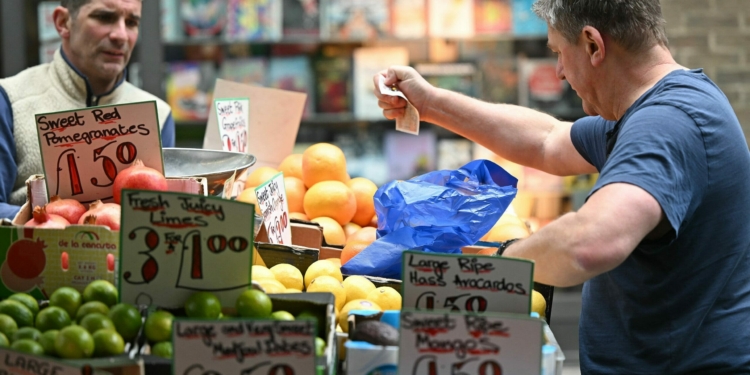The inflation rate in the United Kingdom fell slightly to 10.7 percent in November from a 41-year high of 11.1 percent in October.
Economists had predicted that inflation would fall to 10.7% rather than the 10.7% announced on Wednesday.
According to the Office for National Statistics (ONS), lower petrol prices helped slow the rate of price increases in the country.
According to the agency, the largest upward contributions came from “housing and household services (primarily from electricity, gas, and other fuels), and food and non-alcoholic beverages.”
According to the report, the largest monthly downward contributions came from “transport, particularly motor fuels,” with rising prices in restaurants, cafes, and pubs making the largest, partially offsetting upward contribution.
Meanwhile, food and non-alcoholic beverage prices increased by 16.5 percent in the year to November, slightly higher than the 16.4 percent increase in October.
Grant Fitzner, ONS chief economist, said:
Although still at historically high levels, annual inflation eased slightly in November.”
Prices are still rising, but by less than this time last year, with the most notable example of this being motor fuels.
Tobacco and clothing prices also rose, but again by less than we saw this time last year.
This was partially offset by prices in restaurants, cafes and pubs, which went up this year compared to falling a year ago.
The inflation data came ahead of the Bank of England’s (BoE) monetary policy announcement on December 15.
The bank raised its interest rate to 3% last month, marking the eighth consecutive rate increase this year.
It also predicted that the country would be in a prolonged recession.










Discussion about this post